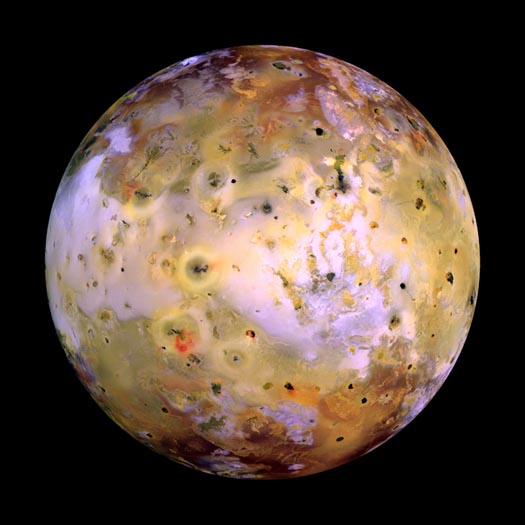
Name: Io
Satellite of: Jupiter
Mission: Galileo
Image Credit: NASA/JPL/University of Arizona
Release Date: August 27, 1999
Global image of Io (false color)
NASA's Galileo spacecraft acquired its highest resolution images of Jupiter's moon Io on 3 July 1999 during its closest pass to Io since orbit insertion in late 1995. This color mosaic uses the near-infrared, green and violet filters (slightly more than the visible range) of the spacecraft's camera which have been processed to enhance more subtle color variations. Most of Io's surface has pastel colors, punctuated by black, brown, green, orange, and red units near the active volcanic centers. A true color version of the mosaic has been created to show how Io would appear to the human eye.
The
improved resolution reveals small-scale color units which had not been
recognized previously and which suggest that the lavas and sulfurous
deposits are composed of complex mixtures. Some of the bright (whitish),
high-latitude (near the top and bottom) deposits have an ethereal quality
like a transparent covering of frost (Cutout B). Bright red areas were
seen previously only as diffuse deposits. However, they are now seen
to exist as both diffuse deposits and sharp linear features like fissures
(Cutout C). Some volcanic centers have bright and colorful flows, perhaps
due to flows of sulfur rather than silicate lava (Cutout D). In this
region bright, white material can also be seen to emanate from linear
rifts and cliffs.
Rollover image for key
Click Here



